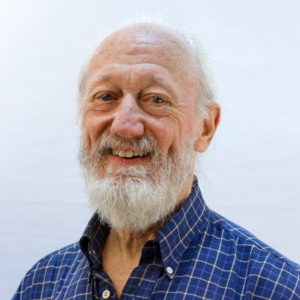What’s Age Got To Do With It?
In this issue, we announce the retirement of one of the pioneers in our field, Dr. Marek Czonyka, founder of the famous Brain Physics Lab at Cambridge. Under Marek’s direction, he built this lab into one of the leading ICP research groups in the world. If you look at the top cited authors in neurocritical care, three of the top five are from this group. It’s been one of the most prolific and productive groups in our field. Marek is stepping down due to a mandatory retirement age, which is mostly a European thing.
Another friend of mine, Linda de Vries, a neonatologist from Utrecht, was one of the most dedicated doctors I’ve ever met. She bypassed having a family, much like me, and married the profession she loved. Her contributions to neonatal brain monitoring are highly significant and she became a mentor many worldwide. Her mandatory retirement was like a forced divorce. She was devastated and so were many of her colleagues. She still speaks at meetings, but had to give up the hands-on care.
The rationale for mandatory retirement seems to be “out with the old” and “in with the new.” In other words, make way for the new younger minds that hold the future. In a discipline where older professors can determine the success or failure of an idea, this mandatory transition might be a good thing.
One only has to look at the history of spreading depolarizations. Aristides Leão, a young neuroscientist, saw these large depolarizations after a brain injury and published the first known paper on them in 1944… But his mentor dismissed them as artifacts, setting the field back considerably until they were seen in animal models. Then, Tony Strong reported seeing them in humans, igniting a renewed interest resulting in their adoption as an important mechanism in the pathological sequence of brain injury.

Edward Koren’s “Out With The Old”
So it may make sense to “clear out the old.” But why use age as the metric? I say this because if I were in academia (depending on the region), I would have been escorted to the intellectual dumpster many years ago (note that many of my co-workers, due to my messy office, think I’m already there). But I think I still have some guidance to give, some ideas to plant, and some more development to do. The key for me, though not easy, is not to manage everything, and just let go when you know the idea or project is on the right track and in the hands of a younger (and likely more capable) colleague.
I also remember some giants in the field who worked well past a “retirement age.” Britton Chance at Penn, a pioneer in optical methods to measure oxyhemoglobin, was one of them. I had the good fortune to work in his lab as a senior in electrical engineering and got to know his family quite well. Dr. Chance served as a mentor and worked in his lab well into his 90s, and remained mentally fit until his death in 2010.
Clearly, there shouldn’t be a retirement “age,” but rather a retirement “mental status.” Like Dr. de Vries, I’m married to my work and will probably die at my desk (and still dreaming that desk will be on a yacht in the Virgin Islands). But I plan to let my colleagues decide how involved I am in the work. It puts the onus on me to make sure I’m a contributor and not an anchor. I also try to bribe my colleagues with burgers and beer to ensure they still need me.
Marek’s retirement lecture will be broadcast via Zoom. We will announce it on our website and in this newsletter. We wish him well.





